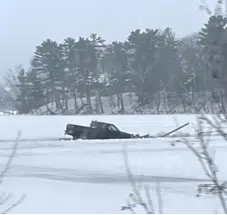
CONLEY COMMENTARY (WSAU) – ‘What’s the job?’ is one of the first questions a cop should ask themselves when responding to a call.
Obviously, the job could change. Situations are fluid. Criminals are unpredictable. What was described as one thing on a dispatch call could be something different when a first responder gets there.
But “what’s the job?” is still a good starting point.
In Memphis, on the night Tyre Nichols was fatally beaten during a traffic stop, the job – if we give police the benefit of the doubt – was to take a reckless driver off the road. How we got from that to a lethal smack-down shows how wide the training gap is between professional, effective policing and what looks like a gangland, goon squad beatdown.
(And I do not give Memphis PD the benefit of the doubt whatsoever in this case. They were interacting with a man who had no known criminal record who was coming home from work and was within a few blocks of his house. The case seems more like a shakedown than a traffic stop.)
But how we got from ‘the job’ – which would entail a traffic stop, questioning, and, possibly an arrest – to what was seen on the bodycam footage, is disgusting. And asking “what’s the job?” also reminds law enforcement that the job isn’t to punish. Courts and juries determine that. “The job” that night for police should have ended with an arrest… and that’s all.
There is something else that’s shocking about what happened in Memphis. The closest thing I’ve ever seen to that was the Rodney King beating in Los Angeles in 1991. The officers who beat him had no idea they were being recorded. They were filmed secretly from a parking lot across the street. They didn’t know that their actions would be seen by millions. The police in Memphis wore bodycams. They knew everything they did would be watched and analyzed. And we saw their brutality, and their lack of humanity in the aftermath. That five Memphis police officers thought that was their job on that night is an outrage.
Chris Conley





Comments